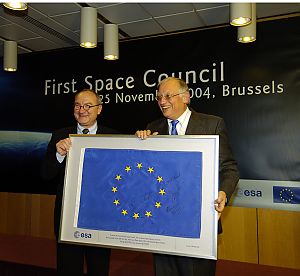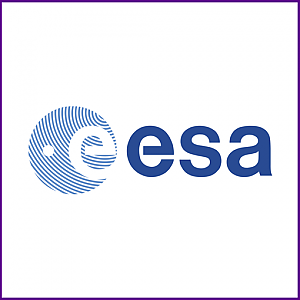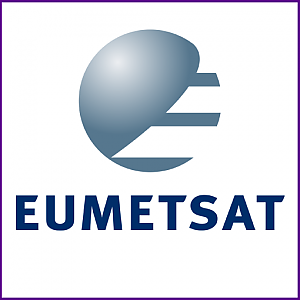European Space Legislation

The European Union's parallel competence in the area of space derives from Art. 4 (3) of the Treaty of the Functioning of the European Union (TFEU). In addition, Art. 189 TFEU forms the legal basis for the European Space Policy, European Space Programme and the collaboration with the European Space Agency. Nevertheless, any harmonisation of the laws and regulations of the member states is excluded.
The European Space Policy is based on the Space Strategy for Europe, which was published by the European Commission in 2016 and approved by the Council of the European Union in 2017. It focuses on four strategic goals:
- Maximising the benefits of space for society and the EU economy;
- Fostering a globally competitive and innovative European space sector;
- Reinforcing Europe's autonomy in accessing and using space in a secure and safe environment;
- Strengthening Europe's role as a global actor and promoting international cooperation.
In 2021, the Regulation establishing the space programme of the Union and the European Union Agency for the Space Programme will come into force. The European space programme will consist of the current flagship space programmes (Galileo, EGNOS, Copernicus) and two new components (Space Situational Awareness and Governmental Satellite Communications). The European GNSS Agency (GSA) will be renamed the European Union Agency for the Space Programme (EUSPA) and will gain new competences.

In 2021, the Regulation establishing the space programme of the Union and the European Union Agency for the Space Programme will come into force. The European space programme will consist of the current flagship space programmes (Galileo, EGNOS, Copernicus) and two new components (Space Situational Awareness and Governmental Satellite Communications). The European GNSS Agency (GSA) will be renamed the European Union Agency for the Space Programme (EUSPA) and will gain new competences.
Art. 189 (3) TFEU, the European Space Strategy and the European Space Programme all refer to the collaboration with the European Space Agency (ESA). Already in 2004, the former European Community and ESA adopted a Framework Agreement. Its Art. 8 estalished the so-called Space Council, to coordinate and facilitate cooperative activities. The 10th Space Council is planned to be held at the end of 2020. Besides, the European Union has concluded various delegation agreements with ESA. Negotiations are currently ongoing for a single Financial Framework Partnership Agreement as provided for in the Regulation establishing the space programme of the Union.

The European Space Agency (ESA) is an intergovernmental organisation established by its Convention, which was opened for signature in 1975 and entered into force in 1980. According to its Art. II, the purpose of ESA is to provide for and promote, for exclusively peaceful purposes, cooperation among member states in space research and technology and space applications. Austria ratified the convention in 1986 and consequently became a full member in 1987.

The European Organisation for the Exploitation of Meteorological Satellites (EUMETSAT) is an intergovernmental organisation established by its Convention, which entered into force in 1986. According to its Art. 2, the objectives of EUMETSAT are to establish, maintain and exploit European systems of operational meteorological satellites and to contribute to the operational monitoring of the climate and the detection of global climate changes. Austria is a member state since 1993. The European Union signed a delegation agreement with EUMETSAT on the collaboration on Copernicus. EUMETSAT also concluded various agreements with the European Space Agency to facilitate their cooperation.
